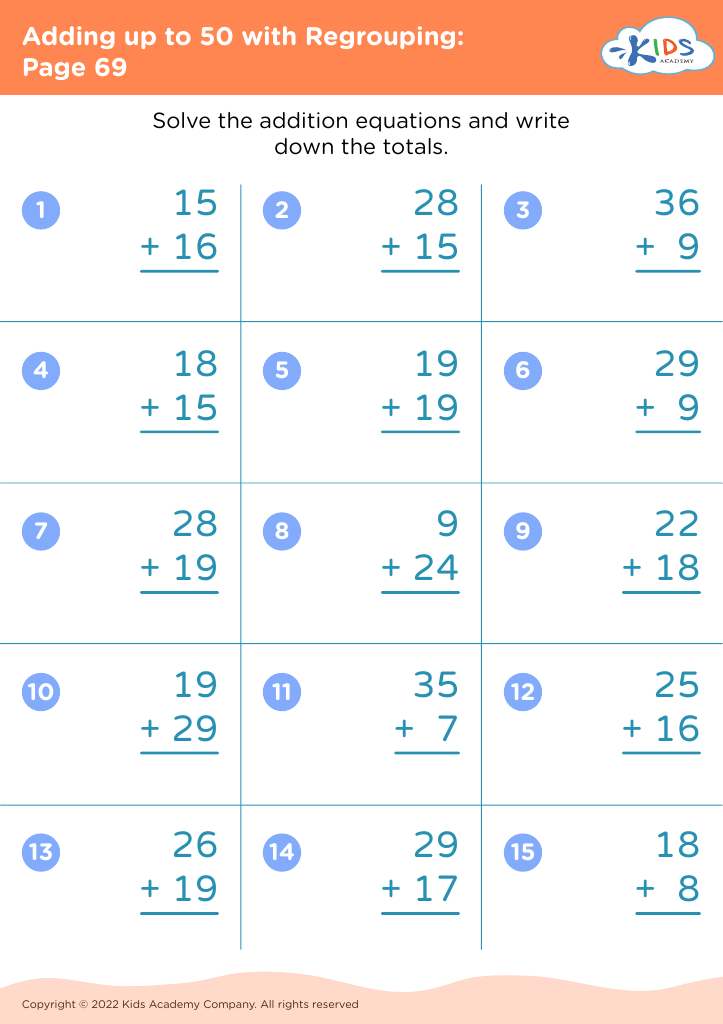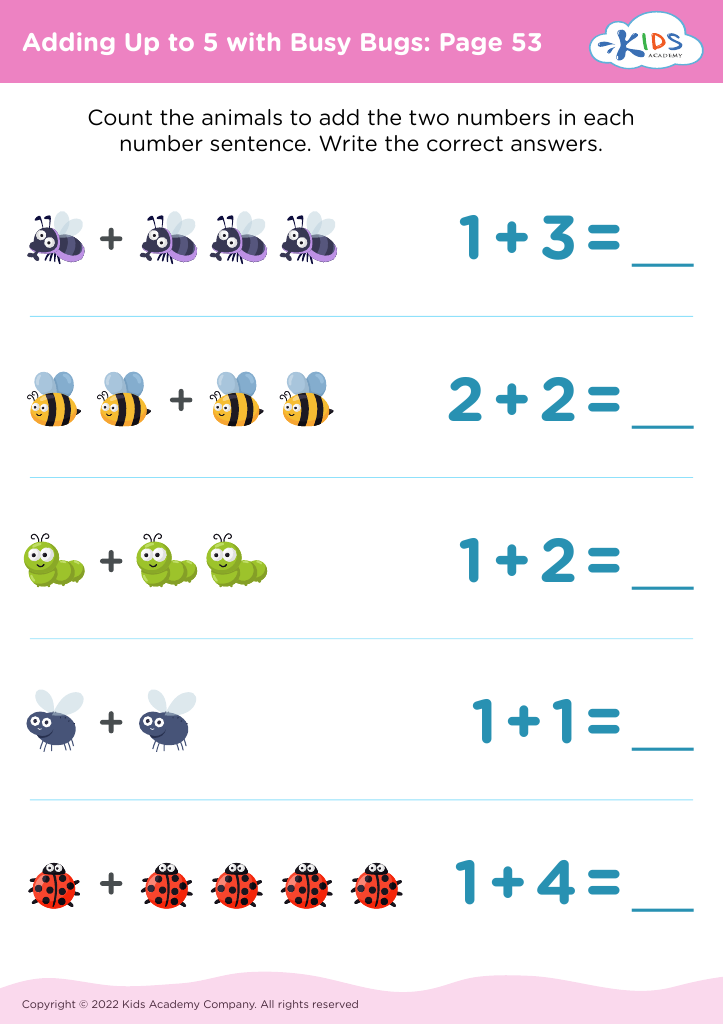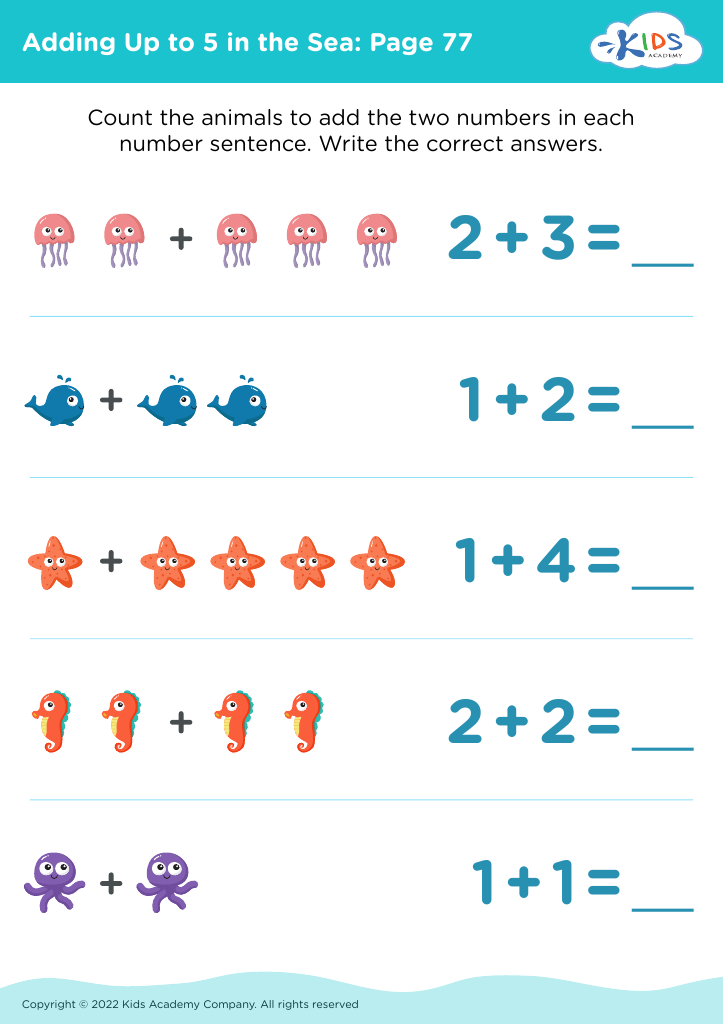Introduction to mathematics Addition & Subtraction Worksheets for Ages 5-8
3 filtered results
-
From - To
Welcome to our "Introduction to Mathematics Addition & Subtraction Worksheets" for children ages 5-8! These engaging worksheets are designed to introduce young learners to the fundamental concepts of addition and subtraction through fun activities and colorful visuals. Each worksheet aims to build confidence and enhance critical thinking skills by offering a variety of exercises, including simple equations and word problems. Ideal for both classroom instruction and at-home practice, our resources align with early learning standards and cater to diverse learning styles. Start your child's mathematical journey today and help them develop a strong foundation in basic arithmetic with our interactive worksheets!
Introduction to mathematics, particularly addition and subtraction, is crucial for children ages 5-8 as it lays the foundation for their future academic success. This early stage is a critical period, as children's brains are highly malleable and primed for learning basic math concepts. Mastering addition and subtraction develops not only mathematical skills but also critical thinking and problem-solving abilities.
Moreover, these foundational skills are essential for everyday life. From managing personal finances to understanding quantities in cooking, a strong grasp of basic arithmetic enhances children's independence and confidence outside the classroom. Engaging children in fun and interactive ways to learn these concepts also fosters a positive attitude toward mathematics, lessening anxiety associated with the subject—an obstacle that can hinder many learners.
Additionally, a solid understanding of addition and subtraction supports more complex mathematical concepts, such as multiplication, division, and algebra, which they will encounter in later grades. By prioritizing these skills, parents and teachers equip children to navigate future academic challenges more effectively, promoting lifelong learning and success. Ultimately, investing in mathematical literacy at this tender age serves as a gateway to a world rich in opportunities and problem-solving abilities.



















